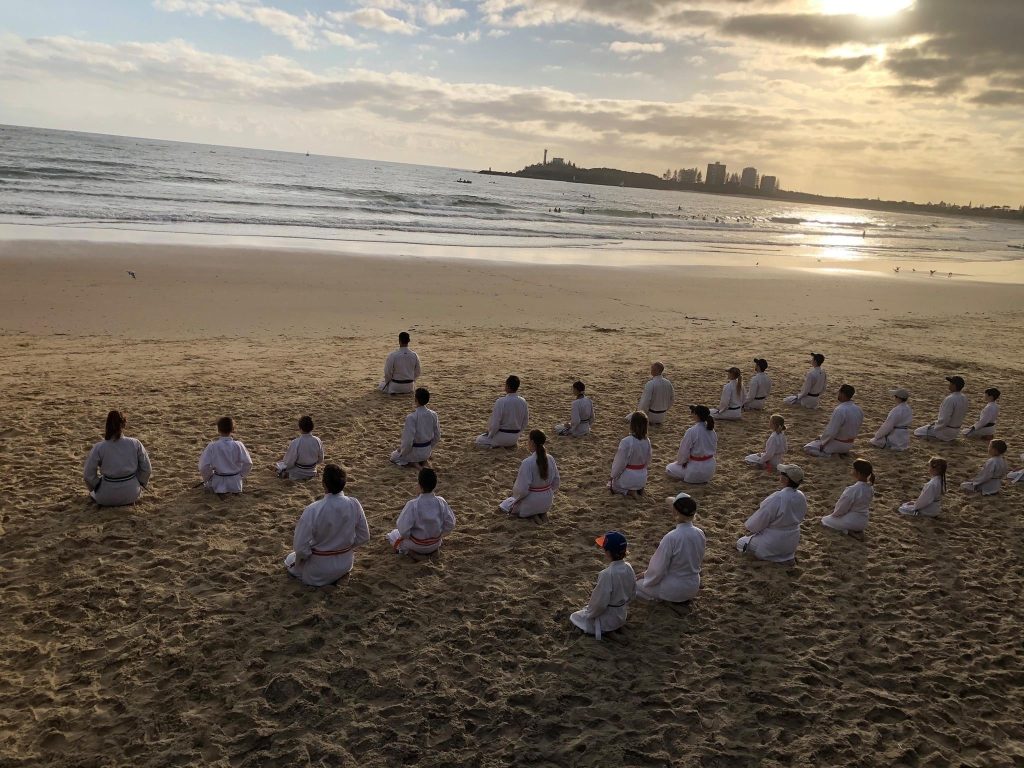Mindful Reflection: Finding Strength in Failure
In the journey of life, few lessons are as profound and universally applicable as the wisdom gained from failure. Failure, often misunderstood as a definitive endpoint, is better understood as a necessary component of progress. It encompasses setbacks, mistakes, and outcomes that deviate from expected or desired results.
This article delves into why failure is a crucial part of personal growth and how the principles learned through karate can illuminate this path of learning.
Failure, in its essence, is not merely a cessation of progress but a crucial juncture for introspection and improvement. It represents moments where our efforts do not yield the desired outcome, prompting us to reassess, adapt, and grow.
Failure, contrary to societal norms of success, is an essential ingredient in the recipe for achievement. Personally, I’ve found that the lessons learned in the dojo of karate mirror those in the broader arena of life. In karate, as in life, each misstep and setback serves as an opportunity for introspection, refinement, and eventual mastery.
Karate is not merely a physical practice but a discipline that nurtures the mind and spirit alongside the body. In the dojo, the concept of failure takes on a unique significance. Every attempt, every technique, every kata, every kumte match teaches humility, resilience, and the importance of perseverance. I am oftened reminded that mastery comes not from flawless execution but from the willingness to confront and learn from my mistakes.
Jon Kabat-Zinn, renowned for his work in mindfulness, asserts that failure is an inevitable part of growth. In his teachings, he emphasizes that mindfulness allows us to observe failure without judgment, thereby transforming it into a valuable learning experience. By integrating mindfulness into our approach to challenges, we cultivate resilience and adaptability.
Failure can often feel like the end of the world. It brings with it a wave of emotions—disappointment, frustration, and sometimes even despair. When a setback occurs, whether in karate or in life, it’s crucial to acknowledge these feelings and allow ourselves time to process them.
In the depths of failure, it may seem impossible to get back on our feet. However, it’s during these moments that we can draw upon the resilience cultivated through karate and mindfulness practices.
For me, the number one strategy in dealing with failure is to slow down, breathe, and simplify. Amidst the chaos of setbacks, taking a moment to pause allows us to recognise the lessons and gifts inherent in failure. It’s during these quiet moments of reflection that we strengthen ourselves and prepare for the next chapter of our journey.
Practices for Bouncing Back
Mindful Reflection: Take time to reflect on the failure without self-judgment. What lessons can be learned from this experience? How can you grow stronger as a result?
Setting Small Goals: Break down larger objectives into smaller, manageable goals. Each achievement, no matter how small, builds momentum and confidence.
Physical Activity: Engage in physical exercise, whether it’s through karate practice or another form of activity. Physical movement can help release stress and improve mood.
Support Network: Lean on friends, family, or mentors for support. Sharing your experiences and receiving encouragement can provide valuable perspective and motivation.
Gratitude Practice: Cultivate gratitude by focusing on what you have achieved and the lessons learned, rather than dwelling on setbacks.
In the pursuit of wisdom on failure, we can draw inspiration from historical figures who have explored its depths. Miyamoto Musashi, legendary swordsman and author of The Book of Five Rings, emphasised the importance of learning from defeat, stating, “Do not regret what you have done. Do not be ashamed of your failures. Learn from them and start again.”
Lao Tzu, the ancient Chinese philosopher, offers timeless wisdom on the nature of failure and growth. He wrote in the Tao Te Ching, “Failure is the foundation of success, and the means by which it is achieved.”
Socrates, the Greek philosopher known for his relentless pursuit of truth and wisdom, viewed failure as a catalyst for self-discovery and growth. He believed that the unexamined life is not worth living, urging individuals to question their beliefs and actions in the face of adversity.
Persistence, fueled by the lessons of failure, is the cornerstone of personal and professional achievement. In karate, earning a black belt isn’t simply about physical prowess but about the mental fortitude to endure, adapt, and persevere despite setbacks. This principle translates seamlessly into everyday life, where resilience and determination often make the difference between success and stagnation.
Tony Robbins advocates for a mindset that views failure as a temporary setback rather than a permanent condition. His teachings emphasise the power of persistence and the importance of learning from failure to fuel future success. By integrating Robbins’ principles with the discipline of karate, individuals can cultivate a mindset of continuous improvement and resilience.
In conclusion, the journey through karate and life teaches us that failure is not a roadblock but a signpost pointing us toward growth and mastery. Embracing failure as the greatest teacher requires a shift in perspective—one that values resilience, perseverance, and the transformative power of learning from setbacks. As Maya Angelou famously said, “You may encounter many defeats, but you must not be defeated.”
Remembering my mum’s words during times when I struggled to handle failure, “Don’t take life too seriously,” offers a light-hearted reminder. It’s a gentle nudge to maintain perspective in the face of adversity.


